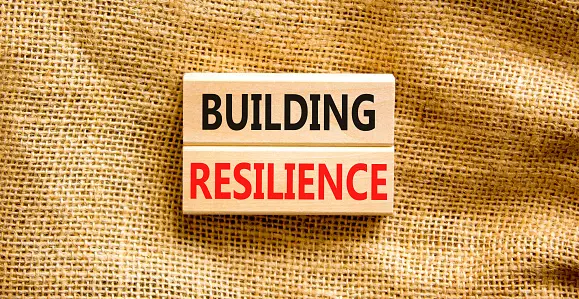Resilience, often defined as the capacity to recover quickly from difficulties, is a trait that everyone can cultivate. It’s about more than just bouncing back from adversity; it’s about thriving despite challenges and using them as opportunities for growth. In a world filled with uncertainties and unexpected setbacks, building resilience is essential for mental health, personal growth, and overall well-being. This article explores the multifaceted nature of resilience, strategies to develop it, and real-life examples of resilient individuals.
Understanding Resilience
What is Resilience?
Resilience is the ability to adapt well in the face of adversity, trauma, tragedy, threats, or significant sources of stress. It involves behaviors, thoughts, and actions that can be learned and developed by anyone. It’s not about avoiding stress but rather learning to navigate through it effectively.
The Importance of Resilience
Resilience is crucial for maintaining mental health and well-being. It helps individuals manage stress, reduce the risk of depression, and enhance overall life satisfaction. Resilient people are better equipped to face life’s challenges with a positive attitude and a sense of purpose.
Factors Influencing Resilience
Several factors contribute to resilience, including genetics, personality, environment, and experiences. Social support, a positive outlook, and effective coping strategies also play significant roles. Understanding these factors can help individuals identify areas where they can build and strengthen their resilience.
Strategies for Building Resilience
Developing a Positive Mindset
A positive mindset is foundational for resilience. It involves looking for the good in situations, maintaining hope, and focusing on strengths rather than weaknesses.
Practicing Gratitude
Gratitude can shift focus from what is lacking to what is present, fostering a sense of contentment and resilience. Keeping a gratitude journal and regularly reflecting on positive experiences can enhance this practice.
Cultivating Optimism
Optimism is about expecting good things to happen and believing in one’s ability to influence the outcome. It can be developed by challenging negative thoughts and focusing on potential positive outcomes.
Enhancing Emotional Intelligence
Emotional intelligence, the ability to understand and manage emotions, is crucial for resilience. It helps individuals navigate stressful situations and build strong relationships.
Self-awareness
Being aware of one’s emotions and how they affect thoughts and behavior is the first step in building emotional intelligence. Mindfulness practices and reflective journaling can enhance self-awareness.
Self-regulation
Managing emotions, particularly in stressful situations, is essential for resilience. Techniques such as deep breathing, meditation, and progressive muscle relaxation can help in regulating emotions.
Strengthening Social Connections
Strong relationships provide support, encouragement, and a sense of belonging, which are vital for resilience.
Building a Support Network
Cultivating relationships with family, friends, and colleagues who provide emotional support can help individuals navigate through tough times.
Seeking Help When Needed
Recognizing when to seek help from others, whether through professional counseling or informal support, is a crucial aspect of resilience.
Developing Problem-Solving Skills
Effective problem-solving skills enable individuals to approach challenges systematically and find solutions.
Setting Realistic Goals
Breaking down large problems into manageable steps and setting achievable goals can make it easier to tackle challenges without feeling overwhelmed.
Flexibility and Adaptability
Being open to change and willing to adjust plans as necessary can enhance resilience. Practicing adaptability helps individuals respond more effectively to unexpected situations.
Fostering a Sense of Purpose
Having a sense of purpose provides motivation and direction, which can be particularly important during challenging times.
Identifying Core Values
Understanding what is truly important can help individuals stay focused and motivated, even in the face of adversity. Reflecting on personal values and aligning actions with them can foster a sense of purpose.
Engaging in Meaningful Activities
Participating in activities that align with one’s values and passions can provide a sense of fulfillment and strengthen resilience.
Real-Life Examples of Resilience
Overcoming Personal Adversity
Nelson Mandela
Nelson Mandela’s resilience is legendary. Despite spending 27 years in prison, he emerged with a vision of reconciliation and a determination to end apartheid in South Africa. His story illustrates how resilience can turn personal suffering into a broader social movement for justice and equality.
Malala Yousafzai
Malala Yousafzai’s courage and resilience have made her a global symbol of the fight for girls’ education. After surviving a Taliban assassination attempt, she continued to advocate for education and women’s rights, showing how resilience can drive social change.
Thriving After Trauma
Viktor Frankl
Viktor Frankl, a Holocaust survivor, used his experiences to develop logotherapy, a form of existential analysis. His book “Man’s Search for Meaning” explores how finding meaning in life, even in the most horrific circumstances, is a key component of resilience.
J.K. Rowling
Before achieving literary success, J.K. Rowling faced significant personal and professional challenges, including poverty and depression. Her persistence and resilience led her to write the Harry Potter series, which has inspired millions worldwide.
Community Resilience
The Japanese Response to Natural Disasters
Japan’s frequent natural disasters have fostered a culture of resilience. Community preparedness, strong social cohesion, and efficient government response are hallmarks of Japan’s approach to resilience.
The Recovery of New Orleans Post-Katrina
The rebuilding of New Orleans after Hurricane Katrina is a testament to community resilience. Despite the devastation, the city’s residents demonstrated strength, solidarity, and determination to restore their community.
The Role of Education in Building Resilience
Incorporating Resilience Training in Schools
Teaching resilience skills in schools can equip children with the tools they need to handle stress and adversity.
Social and Emotional Learning (SEL)
SEL programs focus on developing emotional intelligence, empathy, and interpersonal skills, all of which are crucial for resilience.
Mindfulness and Stress Management Techniques
Incorporating mindfulness and stress management techniques into the curriculum can help students develop the skills to manage stress effectively.
Promoting a Growth Mindset
A growth mindset, the belief that abilities can be developed through dedication and hard work, is essential for resilience. Encouraging a growth mindset in educational settings can help students view challenges as opportunities for growth.
Praising Effort, Not Just Achievement
Focusing on the effort and process rather than just the outcome encourages students to persevere despite difficulties.
Emphasizing Learning from Failure
Teaching students to view failures as learning opportunities rather than setbacks can foster resilience and a love of learning.
The Impact of Technology on Resilience
Positive Contributions of Technology
Technology can play a significant role in building resilience by providing access to resources, support networks, and educational tools.
Online Support Communities
Online platforms can offer support and a sense of community for individuals facing similar challenges, providing encouragement and advice.
Mental Health Apps
Apps designed to promote mental health can offer tools for stress management, mindfulness, and emotional regulation.
Potential Challenges
While technology can aid in building resilience, it also poses challenges that need to be managed.
Digital Overload
Excessive use of digital devices can lead to stress and burnout. It’s important to balance screen time with offline activities.
Cyberbullying and Online Harassment
Negative online interactions can harm mental health and resilience. Promoting digital literacy and respectful online behavior is crucial.
Cultivating Resilience in the Workplace
Creating a Resilient Work Environment
Organizations can foster resilience by creating supportive and flexible work environments.
Encouraging Work-Life Balance
Promoting a healthy work-life balance can help employees manage stress and maintain well-being.
Providing Employee Support Programs
Access to counseling, stress management workshops, and other support programs can enhance employee resilience.
Leadership and Resilience
Leaders play a crucial role in fostering resilience within their teams.
Leading by Example
Resilient leaders can inspire and motivate their teams by demonstrating how to handle challenges effectively.
Promoting a Positive Organizational Culture
Creating a culture that values collaboration, innovation, and support can help build a resilient workforce.
Developing Individual Resilience at Work
Employees can take proactive steps to build their own resilience.
Time Management Skills
Effective time management can reduce stress and increase productivity, contributing to resilience.
Continuous Learning and Skill Development
Engaging in ongoing professional development can enhance resilience by keeping skills relevant and boosting confidence.
Resilience and Physical Health
The Mind-Body Connection
Physical health and resilience are closely linked. Maintaining good physical health can enhance mental resilience and vice versa.
Regular Exercise
Exercise has been shown to reduce stress, improve mood, and boost overall resilience.
Healthy Eating
A balanced diet supports both physical and mental health, contributing to overall resilience.
Managing Chronic Illness
Building resilience is particularly important for individuals managing chronic illnesses.
Developing a Support Network
Having a strong support system can help individuals navigate the challenges of chronic illness.
Focusing on What Can Be Controlled
Focusing on aspects of life that can be controlled, rather than dwelling on limitations, can enhance resilience.
The Role of Spirituality in Building Resilience
Finding Meaning and Purpose
Spirituality can provide a sense of meaning and purpose, which is crucial for resilience.
Faith and Resilience
For many, faith offers comfort and strength in difficult times, fostering resilience.
Practices such as Meditation and Prayer
Meditation, prayer, and other spiritual practices can enhance emotional regulation and provide a sense of peace.
Community and Belonging
Spiritual communities can offer support, encouragement, and a sense of belonging, all of which are important for resilience.
Conclusion
Building resilience is a multifaceted process that involves developing a positive mindset, emotional intelligence, strong social connections, problem-solving skills, and a sense of purpose. By understanding and implementing strategies to enhance resilience, individuals can better navigate life’s challenges and emerge stronger and more adaptable. Real-life examples of resilience, the role of education, technology, workplace dynamics, physical health, and spirituality all contribute to a comprehensive understanding of how to build and sustain resilience. In a world where adversity is inevitable, resilience is not just a desirable trait but a vital necessity for thriving in the face of challenges.




